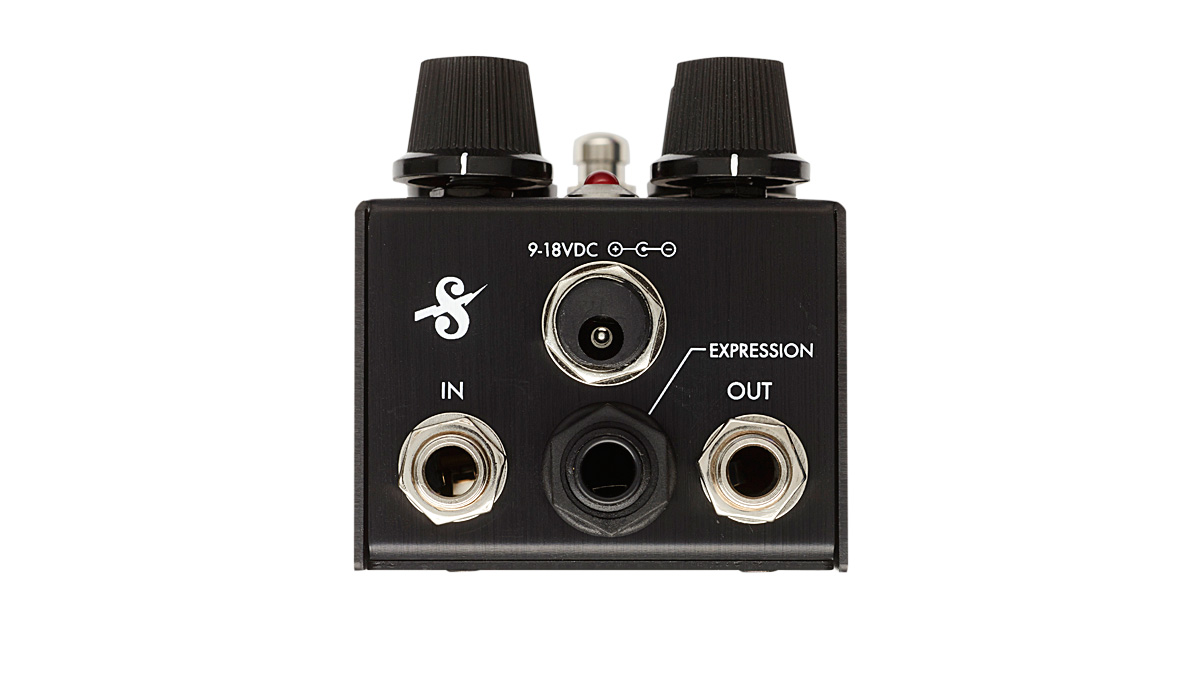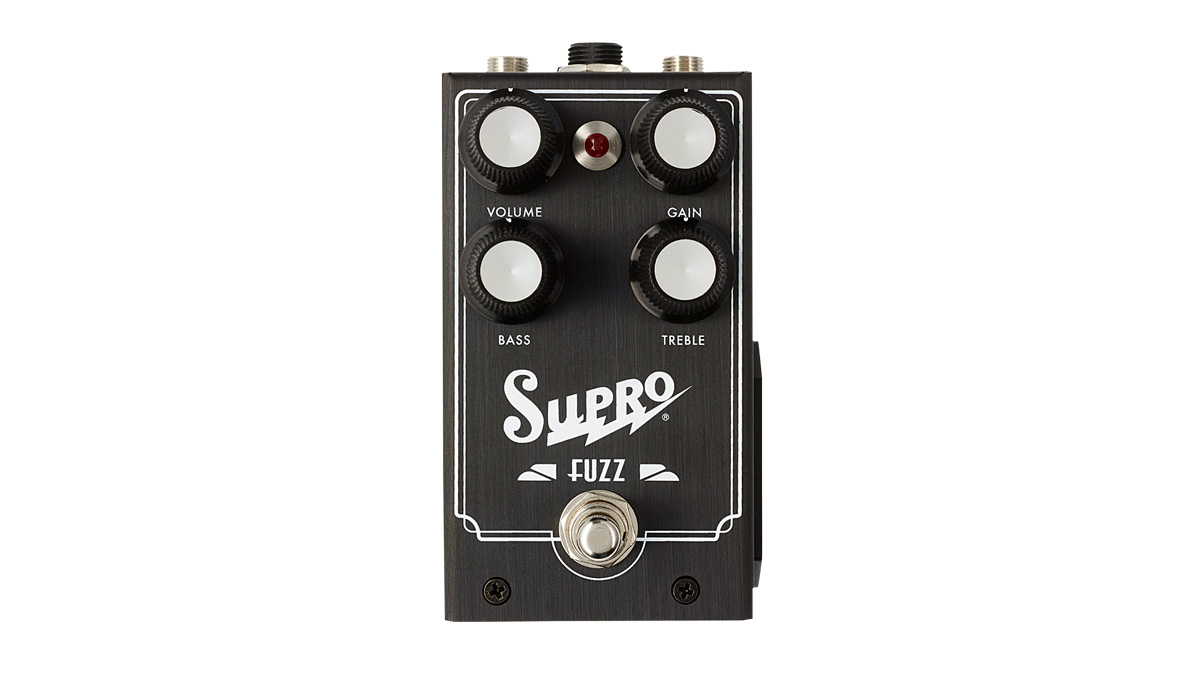MusicRadar Verdict
While fuzz can be a very personal thing, this one offers extra versatility through its tone knobs.
Pros
- +
Solid build.
Cons
- -
Some minor design niggles.
MusicRadar's got your back
With its amps having a certain cachet, not least a Jimmy Page connection, it was no surprise that the Supro name was revived recently by the people behind Pigtronix pedals.
The resulting series of new amps has quickly gained respect and one of their designers, Thomas Elliot, has now put his expertise behind a new range of Supro pedals, the first three fruits of his labour being these Drive, Fuzz and Boost pedals. Today, we’re looking at the Fuzz.
All of these new Supro pedals are workmanlike rather than boutique-slick with solid, if rather tall, brushed aluminium casings. All run from a standard nine-volt power supply but can also take 18 volts for extra headroom. All can also run from a battery that is housed in an easy-access slide-out plastic tray on the pedal’s side. Another neat feature is that all have a socket to take an expression pedal to control one specific parameter.
Sounds
Supro says that its Fuzz pedal design takes inspiration from three classics of the genre: a Fuzz Face, Tone Bender MKII and a Big Muff, although the Fuzz Face seems to be the dominant DNA.
The result is a pedal that uses a NOS germanium transistor in its first stage, followed by a silicon-based gain stage. Now, with some fuzz pedals it’s true that they don’t really come alive until you’ve cranked them a bit - and this pedal leans towards that characteristic.

We like it best with both Volume and Gain knobs at the further extremes of their travel, backing things off from all-out fuzz assault with guitar volume.
There’s Bass and Treble EQ here, derived from the Supro amps, and at midway settings the pedal’s voicing is full and fat, but you can roll the Bass knob back for a lean 60s Satisfaction-style buzz, while extra presence in the mix and harder attack are dialled in by taking the treble knob past midday - something that can also be controlled by an expression pedal to explore a more nuanced playing experience.
Want all the hottest music and gear news, reviews, deals, features and more, direct to your inbox? Sign up here.
While fuzz can be a very personal thing, this one offers extra versatility through its tone knobs.
Trevor Curwen has played guitar for several decades – he's also mimed it on the UK's Top of the Pops. Much of his working life, though, has been spent behind the mixing desk, during which time he has built up a solid collection of the guitars, amps and pedals needed to cover just about any studio session. He writes pedal reviews for Guitarist and has contributed to Total Guitar, MusicRadar and Future Music among others.

